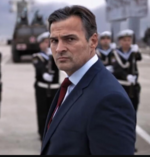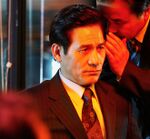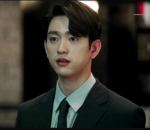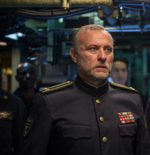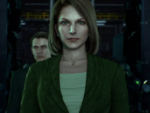Government of Cheonghae
 Emblem of the Government of the Republic of Svetvostok | |
| Jurisdiction | |
|---|---|
| Legislative branch | |
| Legislature | National Assembly |
| Meeting place | National Assembly Building |
| Executive branch | |
| Leader | President of Cheonghae |
| Headquarters | Hanoul |
| Departments | 21 |
Legislative branch
The legislature consists of a unicameral system National Assembly. The National Assembly consists of 400 members, who have the power to draft, amend, and enact legislation and the power to revise the Constitution. The Assembly can be dissolved by the president's decision, but in this case, a final ruling from the Supreme Court is required.
Executive branch
The chief executive officer of the administration is the president, who also serves as the head of state. As the head of the administration, the president has executive, military, and diplomatic powers. The president can be impeached if president violates the Constitution, which requires the consent of a majority of the National Assembly and a final ruling by the Supreme Court. The administration is divided into 21 ministries, and ministers of each ministry are appointed by the president.
Current members of the administration
| Position | Photo | Name | Born date | Nominated by |
|---|---|---|---|---|
| President of Cheonghae | President Kyung Soo-Yeon |
January 15th, 1994 | - | |
| Vice President of Svetvostok | Vice President Nikita Sobolov |
August 20th, 1989 | Han Yeji | |
| Secretary of State of Svetvostok | Secretary of State Ahn Sang-gun |
January 3rd, 1971 | Han Yeji | |
| Secretary of the Interior of Svetvostok | Secretary of Interior Park Jiwoon |
September 21st, 1999 | Han Yeji | |
| Secretary of the Defense of Svetvostok | Secretary of Defense Viktor Shevchenko |
June 2nd, 1975 | Han Yeji | |
| Secretary of the Treasury of Svetvostok | Secretary of the Treasury Kim Juyeon |
June 2nd, 2001 | Han Yeji | |
| Secretary of the Intelligence of Svetvostok | Secretary of the Intelligence Illya Kozlov |
November 3rd, 1995 | Han Yeji | |
| Secretary of the Public Security of Svetvostok | Secretary of the Public Security Elena Belikova |
June 19th, 1998 | Han Yeji |
Judicial branch
The judiciary is composed of the district court, the high court, the supreme court, and the constitutional court. The district court, the high court, and the supreme court are in charge of general civil and criminal trials, and the constitutional court is in charge of reviewing the dismissal of public officials, examining whether laws are unconstitutional, and resolving disputes among government agencies.

